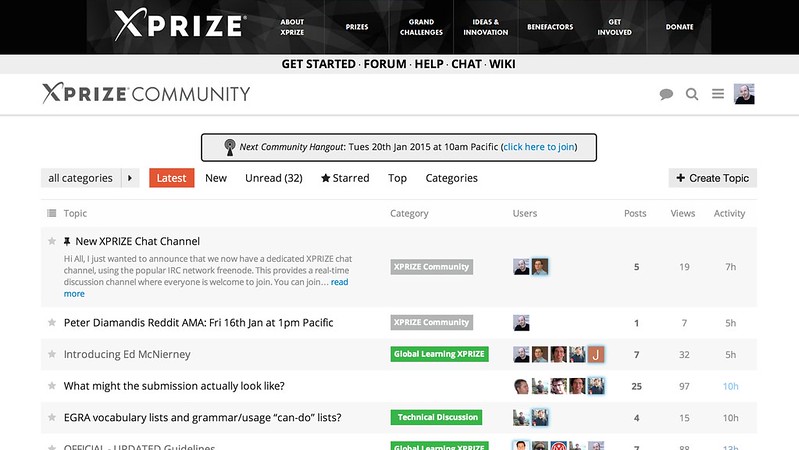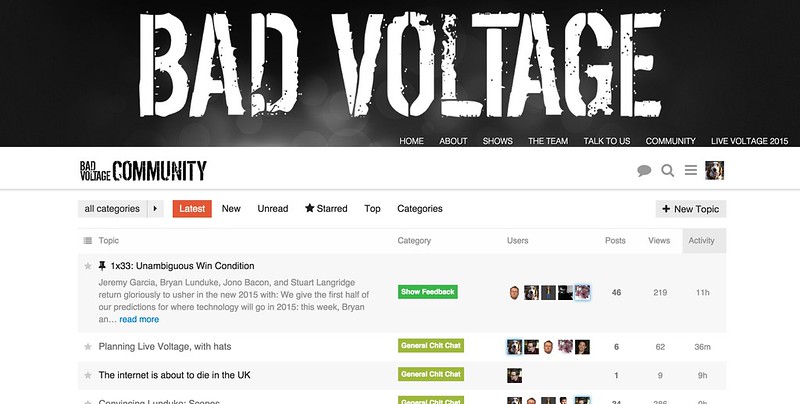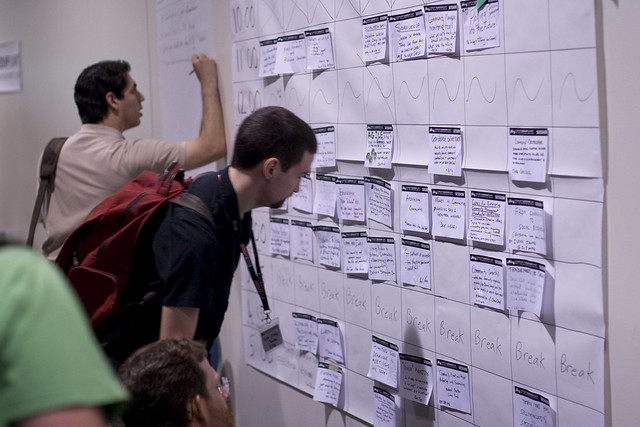
Your new Community Manager Hire: 5 Areas to Focus on
So, you have just hired that new community manager into your organization. Their remit is simple: build a community that wraps around your product/technology/service. You have an idea of what success looks like, but you are also not entirely sure exactly what this new hire will be doing at a tactical level.
Lots of people are in this position. Here are five things you should focus on to help ensure they are successful.
### 1. Think carefully about the reporting line
When a new community manager joins a company the question is where they report. In many cases they report into Marketing, in some cases (particularly for technology companies) they report to Engineering. In some cases they report to the COO.
Much of this depends on what the community manager is doing. If they are managing social and forums, marketing may be a good fit. If they are building a developer community, engineering may be a good.
If however they are building a full community with infrastructure, processes, governance, and more, they are going to be working cross-team in your organization. As such, having them report into a single team such as Marketing may not be a good idea: it may restrict their cross-functional capabilities and executive buy-in.
Also, and how do I say this delicately…there is often a philosophical difference between traditional marketing/brand managers and community managers. Think carefully about how open to community success your marketing manager is…if they are not very open, they may end up squashing the creativity of your new hire.
### 2. Build a strategic plan
A key part of success is setting expectations. With rare exceptions, right out the gate the difference in expectations between senior execs and a new community manager are likely to be pretty significant. We want to reduce that gap.
To do this you need to gather stakeholder requirements, define crisp goals for what the community should look like and map out an annual strategic plan that outlines what the community manager will achieve to meet those goals as well as crisp success criteria. Summarize this into a simple deck to review with the exec team and other key leaders in the organization.
The community manager should make a point of socializing the strategy with the majority of the organization: it will help to smooth the lines to success.
### 3. Provide mentoring
The is a huge variance in what community managers actually do. Some take care of social media, some respond on forums, some fly to conferences to speak, and some built entire environments with infrastructure, process, governance, and on-ramps to help the community be successful.
I believe the latter, is the true definition of a community manager. A community manager should have a vision for a community and be able to put all the infrastructure, process, and resources in place to achieve it.
This is tough. It requires balancing lots of different teams and resources, and your new hire may feel they are drowning. Find a good community manager who gets this kind of stuff and ask them for help. Encourage an environment and culture of learning: help them to help themselves to be successful.
### 4. Have an “essential travel only” policy
I see the same thing over and over again: a new community manager joins a company and the company spends thousands flying them to every conceivable conference to speak and hang out with attendees. This is usually with the rationale of “spreading the word”.
Here’s the deal. Every minute your community manager is on the road, at conferences, preparing talks, and mingling with people, they are not working on the wider community vision, they are working on the scope of that event. Travel 2is incredibly disruptive and conferences are very distracting, and at the beginning of a new community, you really want your community manager putting the foundations of your community in place which typically means them being sat at a computer and drinking plenty of coffee.
Now, don’t get me wrong, conferences and travel are critical for community success. My point is that you should pick conferences that match closely with the strategy you have defined. This keep your costs lower, your new hire more focused, and help get things up and running quicker.
### 5. Train the rest of your employees
The word “community” means radically different things to different people. For some a community is a customer-base, for some it is engineering, for some it is a support function, for others it may be social media.
When your new community manager joins, your other staff will have their own interpretation of what “community” means. You should help to align the community manger’s focus and goals with the rest of the organization.
In many companies, the formation of a community is a key strategic change. It is often a new direction that is breaking some ground. In these cases, this step is particularly important. We want to ensure the wider team knows the organizational significance of a community, but also to get them bought into the value and opportunity it brings.
I hope this helps. If anyone has any questions I can help with, feel free to get in touch.

Discourse: Saving forums from themselves
Many of us are familiar with discussion forums: webpages filled with chronologically ordered messages, each with a little avatar and varying degrees of cruft surrounding the content.
Forums are a common choice for community leaders and prove to be popular, largely due to their simplicity. The largest forum in the world, Gaia Online, an Anime community, has 27 million users and over 2,200,000,000 posts. They are not alone: it is common for forums to have millions of posts and hundreds of thousands of users.
So, they are a handy tool in the armory of the community leader.
The thing is, I *don’t particularly like them*.
While they are simple to use, most forums I have seen look like 1998 vomited into your web browser. They are often ugly, slow to navigate, have suboptimal categorization, and reward users based on the number of posts as opposed to the quality of content. They are commonly targeted by spammers and as they grow in size they invariably grow in clutter and decrease in usefulness.
I have been involved with and run many forums and while some are better, most are just similar incarnations of the same dated norms of online communication.
So…yes…not a fan. 🙂
## Enter Discourse
Fortunately a new forum is on the block and it is really very good: [Discourse](https://www.discourse.org/).
Created by Jeff Atwood, co-founder of Stack Overflow and the Stack Exchange Network, Discourse takes a familiar but uprooted approach to forums. They have re-thought through everything that is normal in forums and improved online communication significantly.
If you want to see it in action, see the [XPRIZE Community](https://forum.xprize.org), [Bad Voltage Community](https://community.badvoltage.org), and [Community Leadership Forum](https://www.communityleadershipforum.com) forums that I have set up.

Discourse is *neat* for a few reasons.
Firstly, it is simple to use and read. It presents a simple list of discussions with suitable categories, as opposed to cluttered sub-forums that divide discussions. It provides a easy and effective way to highlight and pin topics and identify active discussions. Users can even hide certain categories they are not interested in.
Creating and replying to topics is a beautiful experience. The editor supports Markdown as well as GUI controls and includes a built-in preview where you can embed videos, images, tweets, quotes, code, and more. It supports multiple headings, formatting styles, and more. I find that posts really come to life with Discourse as opposed to the limited fragments of text shown on other forums.
Discourse is also clever in how it encourages good behavior. It has a range of trust levels that reward users for good and regular participation in the forum. This is gamified with badges which encourages users to progress, but more importantly from a community leadership perspective, it provides a simple at-a-glance view of who the rock stars in the forum are. This provides a list of people I can now encourage and engage to be leaders. Now, before you get *too* excited, this is based on forum usage, not content, but I find the higher trust level people are generally better contributors anyway.

Discourse also makes identity pleasant. Users can configure their profiles in a similar way to Twitter with multiple types of imagery and details about who they are. Likewise, referencing other users is simple by pressing `@` and then their username. This makes replies easier to spot in the notifications indicator and therefore keeps the discussion flowing.
Administrating and running the site is also simple. User and content management is a breeze, configuring the look and feel of most aspects of the forum is simple, and Discourse supports multiple login providers.
What’s more, you can install Discourse easily with docker and there are many hosting providers. While Jeff Atwood’s company has [their own commercial service](https://payments.discourse.org/buy/) I ended up using [DiscourseHosting](https://discoursehosting.com/) who are *excellent* and pretty cheap.
To top things off, the Discourse community are responsive, polite, and incredibly enthusiastic about their work. Everything is Open Source and everything works like clockwork. I have never, not once, seen a bug impact a stable release.
All in all Discourse makes online discussions in a browser *just better*. It is better than previous forums I have used in pretty much every conceivable way. If you are running a community, I strongly suggest you check Discourse out; there simply is no competition.

Announcing the Community Leadership Summit 2015!
I am delighted to announce the [Community Leadership Summit 2015](https://www.communityleadershipsummit.com/), now in it’s seventh year! This year it takes place on the **18th and 19th July 2015**, the weekend before [OSCON](https://www.oscon.com/open-source-2015) at the [Oregon Convention Center](https://www.oregoncc.org/). Thanks again to [O’Reilly](https://www.oreilly.com) for providing the venue.
For those of you who are unfamiliar with the CLS, it is an entirely free event designed to bring together community leaders and managers and the projects and organizations that are interested in growing and empowering a strong community. The event provides an unconference-style schedule in which attendees can discuss, debate and explore topics. This is augmented with a range of scheduled talks, panel discussions, networking opportunities and more.

The heart of CLS is an event driven by the attendees, for the attendees.
The event provides an opportunity to bring together the leading minds in the field with new community builders to discuss topics such as governance, creating collaborative environments, conflict resolution, transparency, open infrastructure, social networking, commercial investment in community, engineering vs. marketing approaches to community leadership and much more.
The previous events have been hugely successful and a great way to connect together different people from different community backgrounds to share best practice and make community management an art and science better understood and shared by us all.
I will be providing more details about the event closer to the time, but in the meantime be sure to [register](https://www.communityleadershipsummit.com/register/)!
## Mixing Things Up
For those who have been to CLS before, I want to ask your help.
This year I want to explore new ideas and methods of squeezing as much value out of CLS for everyone. As such, I am looking for your input on areas in which we can improve, refine, and optimize CLS.
I ask you head over to the [Community Leadership Forum](https://communityleadershipforum.com/) and share your feedback. Thanks!

Bad Voltage and Ubuntu
I know many of my readers here are Ubuntu fans and I wanted to let you know of something neat.
For just over a year now I have been doing a podcast with Stuart Langridge, Bryan Lunduke, and Jeremy Garcia. It is a fun, loose, but informative show about Open Source and technology. It is called [Bad Voltage](https://www.badvoltage.org).

Anyway, in the show that was released today, we did an interview with Michael Hall, a community manager over at Canonical (and who used to work for me when I was there).
It is a fun and interesting interview about Ubuntu and phones, release dates, and even sets a challenge to convince Lunduke about the value of scopes on the [Bad Voltage Forum](https://community.badvoltage.org).
Go and [listen to or download the show here](https://www.badvoltage.org/2015/01/08/1×33/) and be sure to share your thoughts on the show in [the community discussion](https://community.badvoltage.org/t/1×33-unambiguous-win-condition/9446).
The show also discusses the Soylent super-food, has predictions for 2015 (one of which involves Canonical), and more!
Finally, Bad Voltage will be doing our first [live performance](https://www.badvoltage.org/live/) at SCALE in Los Angeles on Fri 20th Feb 2015. We hope to see you there!
